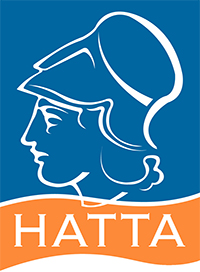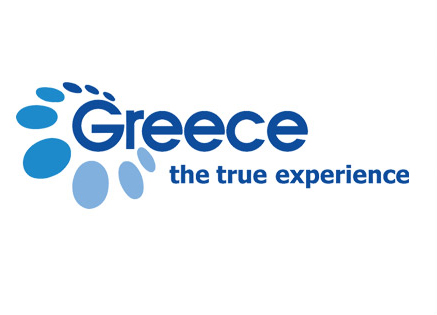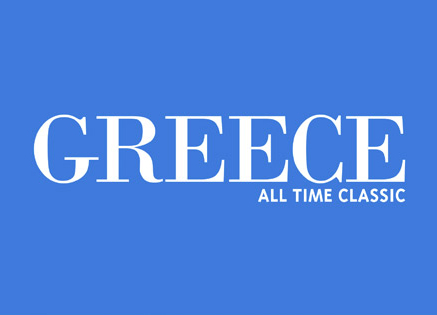FILOXENIA – A GREEK WORD MEANING “BEFRIEND THE STRANGERS”
The Greek society consists of close-knit families where important social organizations have gradually evolved from the idea of family. The institution of marriage also plays an important role in society. The word family in Greece refers to a particular social group whose members are related by blood or marriage at different levels or in different forms or combinations.
Greek food and beverages are famous all over the world for both quality and taste. Greek cuisine is often cited as an example of the healthy Mediterranean diet while sharing food and drinks with relatives and friends is one of the basic elements of the Greek culture. Greek cuisine incorporates fresh ingredients, among them garlic, onions, fennel, zucchini, grapes, apples, dates and figs, into a variety of local dishes some of which can be traced back to Ancient Greece. Eating is taken seriously in Greece and sitting at the table enjoying food and conversation is a sacred time for them.
The music of Greece is as diverse and celebrated as its history. Greek music separates into two parts: Greek traditional music and Byzantine music. Pure forms of Byzantine music can only be seen in Orthodox churches nowadays, since music has evolved drasticaly. Bouzouki, an instrument that is a desendant of ancient pandoura is the protagonist of modern Greek music. Greeks love to dance in its sound and you can find bouzoukia practically everywhere in Greece. So if you go to ‘Bouzoukia‘ be prepared to dance until the morning. Nights in Greece are a delight. A summer night out usually starts with a dinner at the many taverns and restaurants in the Greek islands and continue with a soft drink in a lounge bar or with a crazy night in a club till the sunrise. Greeks drink mainly wine and other drinks also, but with measure, they do not like to get completely drunk, they just drink to have fun. ome places known for their nightlife are Mykonos, Crete, Kos, Rhodes and more. Folklore and traditional music is very popular also in many parts of Greece especially in Northern Greece, Crete and the islands where people dance with traditional costumes.
Going out for a coffee is a special habitude for the Greeks, a strong part of their culture. The average coffee meeting for a Greek is about 1 and half hour. The Greeks get together over a coffee and chat loudly. In the village squares, you will see the traditional type of cafeteria in Greece, the kafenion. Mostly old men go there to drink their traditional Greek coffee, chat and play cards.
FOOD TREASURES
Simple and pure
One thing has always been true about Greek cuisine: the emphasis on genuine raw materials, unadulterated and grown locally simple dishes, cooked slowly and without fussy sauces, seasoned with herbs and olive oil rather than exotic spices, with love and imagination.
Greeks approach food with a combination of seriousness and nostalgia, inevitably thinking back to the dishes they were raised on. They don’t eat to live but rather live to eat, and a meal is almost always a social, convivial occasion, which revives the original meaning of companionship – people who broke bread together. There is no notion of the western ‘eat and run’ syndrome. Here in Greece, a lunch or dinner can last for hours, and the more people gathered at the table the better, for good food and good wine bring good talk. So, sit down and prepare to enjoy yourself.
Greece has a culinary history that spans millenia and has influences from many civilizations that conquered its lands in the past. Traditional Greek food is excellent and voted many times as one of the best cuisines in the world. Over the past couple of decades a new wave of chefs has sprung up, who are committed to recreating the traditional Greek cuisine they were nurtured on but with new combinations and techniques. Often trained abroad, where they have come into contact with other food cultures, they are two-way ambassadors. As they return, they experiment with new approaches to traditional recipes, changing techniques and creating a modern Greek cuisine. Domestic production which had been neglected is also being rediscovered, transformed and redesigned.As examples, we have the rare Cretan skolymbous, a wild green that costs more than fillet mignon, sweet potatoes from Trikala, chestnuts from Volos, farmed black pork, mountain goat from Crete. An intriguing fusion: the old with its historic value, blended with new ideas, to give it new life. Innovative, with surprising revelations, excitingly fresh. You’ll be impressed by the inventiveness of the new generation of cooks in the fine restaurants of the mainland and islands, from Crete to Corfu, from Halkidiki to Laconia. You don’t have to seek them out. In Rallis travel we have tasted the treats of our land and we know where the best are. Let us guide you and we promise you’ll be asking for a second helping.
The thing that will strike you immediately is the freshness and excellence of the local produce: the just-picked salads, the freshly caught seafood, the meat raised on a hillside not factory-farmed. This is the flavour of Greek cuisine: salt from the ubiquitous sea, olive oil, our liquid gold that contains all the goodness of the sun, and bread, the staff of life, ground from wheat, the age-old fruit of the earth. And all in one mouthful.
FESTIVALS
In Greece, the birthplace of the arts, sciences, music, history and culture, you can relive the miracle. Unique performances and events for every taste!
Greeks celebrate all kinds of things all year round. Whether, cultural, or religious or of paganistic nature, festivals and cultural events play a major part in the lives of Greeks.
Most festivals in Greece take place in summer. They can be religious festivals (panigiri) on the occasion of the name day of the protector saint in a village or town, or they can also be cultural festivals with various events. The panigiri – festival – features free food, drink, traditional music and dancing with the congregation into the wee hours. On the Ionian islands of Corfu, Kefalonia and Zante, the patron saints Spyridon, Gerasimos and Dionysios are honoured with panache and processions accompanied by marching bands. In Agiassos on Lesvos, on Prophet Elijah day, riders on decorated horses climb up to the mountain chapel, where one of them will be selected to bring down the Prophet’s icon. The celebrations on August 15 in honour of the Virgin, attract thousands of worshipers. Especially popular are those at the cathedral of Tinos, Ekatondapyliani on Paros and Hozoviotissa on Amorgos. In Crete you can find a panigiri nearly everyday in a different village each having a main food theme which is served for free: wine celebration, goat celebration, cheese celebration, snail celebration etc.
Easter is the most important festival of the Greek Orthodox Church. It starts 7 weeks before Easter Sunday and comes to its peak the Holy Week. On Good Friday, a special celebration takes place when all the flowered tombs of the Christ (named Epitaphios) are gathered at the squares and make the tour of the towns. The peak of the Easter is on Good Saturday at midnight, when pilgrims go the church and get the Holy Light. At midnight exactly, the priest appears holding a lighted torch and shares the Holy Flame on the candles of near worshippers. After midnight, families and friends eat “magiritsa”, a soup made from lamb tripe, rice, dill and lemon. The rest of the lamb is grilled on Sunday morning for lunch, accompanied by wines and dances. This festival is of great importance in all the regions of Greece but some places, such as the Greek islands of Corfu island and Chios island, are very famous for their Easter celebrations. In Corfu people throw clay pots from windows and balconies which crash noisily on the streets below while in Chios the two main churches engage themselves in a ‘rocket war’ which turns this village into a virtual battlefield. In some towns, the Burning of Judas takes place on Easter Sunday in the evening.
Another important festival season is the Carnival. The Carnival is called “Apokries” in Greek and it is expressed by three weeks of feasting and dancing. The Carnival takes place three weeks before Lent Monday. Important Carnival Parades take place in Patra, Xanthi, Corfu island and Rethymno with wonderful parties. In Naoussa the custom named “Janissaries and Boules” prevails in celebration. There are many indications that the custom is connected with the ancient festivals for welcoming spring during which Dionysus, the ancient Greek god of wine, was honoured. However the custom changed during Ottoman occupation and started what is now a ritual event that still adheres to the same routes and strict principles to this day, with verbal rules passing from one generation to the next.The exact dates of the Carnival vary, depending on the Easter.
Other important celebration days include New Year’s Eve, Christmass, Indipendence day on the 25th of march, ‘Ohi‘ day on the 28th of October, Clean Monday during which families go for a picnic in the countryside and fly kites and many others.
Many cultural festivals also take place with the most prominent being the Athens Epidaurus Greek Festival, with events in the Ancient Theatre of Epidaurus, the Herodeion Theatre in Athens and other venues. Such festivals with music concerts, theatre performances, lectures and custom revivals take place in all Greek islands and towns, usually in summer, presenting the local culture and occasionally hosting international participations.
MARATHON – Run on the Original Route
The first two decades of the fifth century B.C. marked one of the great turning points in world history. These were the years of the Persian and Greek wars. By the year 490 B.C., the Persian Army was ready to expand their territory and move into Europe. They landed a large force just outside of Athens on the plains of Marathon and prepared for attack. The Athens, vastly outnumbered, desperately needed the help of Sparta’s military base to help fend off the attack. Time was short, so the Athenian generals send Phidippides (or Philippides) a professional runner to Sparta to ask for help. The 140 mile course was very mountainous and rugged. Phidippides ran the course in about 36 hours. Sparta agreed to help but said they would not take the field until the moon was full due to religious laws. This would leave the Athenians alone to fight the Persian Army. Phidippides ran back to Athens (another 140 miles!) with the disappointing news. Immediately, the small Athenian Army (including Phidippedes) marched to the plains of Marathon to prepare for battle.
The Athenian Army was outnumbered 4 to 1 but they launched a suprise offensive thrust which at the time appeared suicidal. But by day’s end, 6400 Persian bodies lay dead on the field while only 192 Athenians had been killed. The surviving Persians fled to sea and headed south to Athens where they hoped to attack the city before the Greek Army could re-assemble there.
Phidippides was again called upon to run to Athens (26 miles away) to carry the news of the victory and the warning about the approaching Persian ships. Despite his fatigue after his recent run to Sparta and back and having fought all morning in heavy armor, Phidippides rose to the challenge. Pushing himself past normal limits of human endurance, the reached Athens in perhaps 3 hours, deliverd his message and then died shortly thereafter from exhaustion.
Sparta and the other Greek polies eventually came to the aid of Athens and eventually they were able to turn back the Persian attempt to conquer Greece. The Greek victory marked one of the decisive events of world history because it kept an Eastern power (the persians) from conquering what is now Europe. The victory gave the Greeks incredible confidence in themselves, their government and their culture.
When the modern Olympics began in 1896, the initiators and organizers were looking for a great popularizing event, recalling the ancient glory of Greece. The idea of a marathon race came from Michel Bréal, who wanted the event to feature in the first modern Olympic Games in 1896 in Athens. This idea was heavily supported by Pierre de Coubertin, the founder of the modern Olympics, as well as by the Greeks. The winner of the first Olympic marathon, on 10 April 1896 (a male-only race), was Spyridon Louis, a Greek water-carrier, in 2 hours 58 minutes and 50 seconds.
In 1983 the first route of Pheidippides, from Athens to Sparta revived, with the name Spartathlon. The race covers the 246 km between Athens and Sparta and is considered an ultra-marathon and one of the most difficult races on earth.
The original epic runs of Pheidippides continue to inspire runners today. Today, athletes who run the Athens Marathon and the Spartathlon will be running in the same footsteps as Pheidippides.



